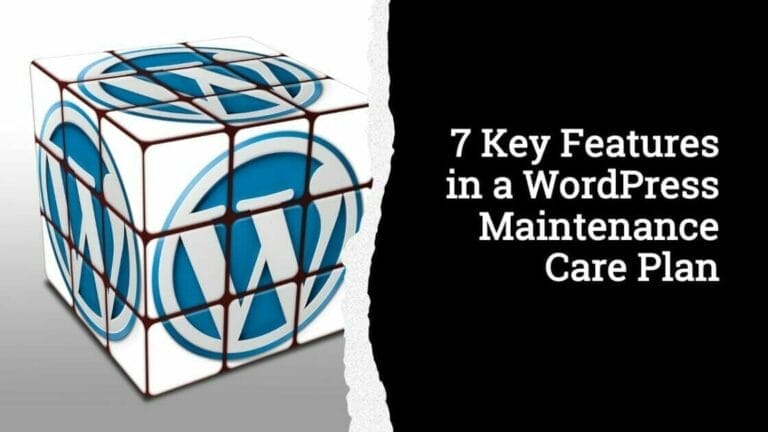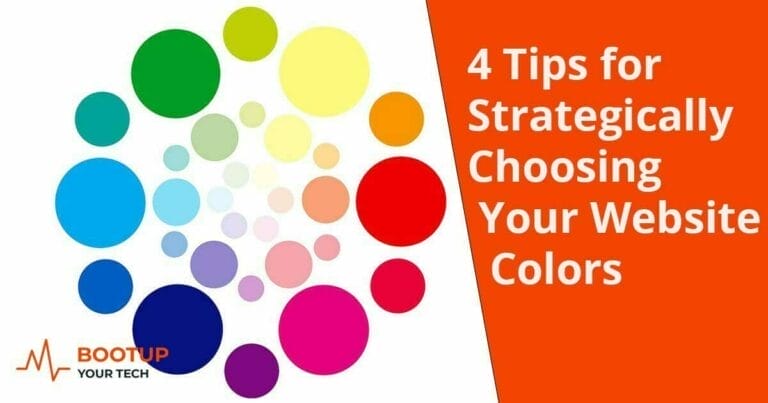Have you ever felt overwhelmed by the number of email marketing platforms available to us. Each of them promising some new tactic to increase our subscriber count. Today things are fast-paced. Email remains one of the most potent tools for entrepreneurs to communicate, engage, and convert potential customers into buying customers.
With so many choices, how do you decide which email marketing tool aligns perfectly with your specific needs? Whether you're a startup dipping your toes into email marketing or an established enterprise aiming to refine your strategy, making the right choice can be scary. The information that I have crafted for you has been created with one goal in mind: to navigate you through the complex world of email marketing platforms.
By the end, not only will you have a clear understanding of the best email marketing tools, but you'll also be equipped to make a decision that amplifies your email marketing campaigns to their fullest potential. Dive in, and let's see which email marketing solution is best.
Understanding Your Email Marketing Software Needs
With so many popular email marketing tools available, understanding what you genuinely need from a platform is essential. Before diving into features, integrations, or price points, you must first evaluate your organization's core requirements. Only then can you align your objectives with the right email marketing software.
Key areas to help you think about what you need for your unique business are the following: your business size, whether you require a scalable system, your marketing goals and your budget. Startups tend to look for platforms that offer basic functionalities without breaking the bank. Keep in mind as a business owner you need to have room to grow, so choose an email marketing platform that can grow with you. On the other hand large corporations have a sufficient budget allocated for their email marketing efforts. They are looking for complicated, robust solutions that incorporates email templates, email builders, sms marketing, marketing automation solutions and other advanced features.
Core Marketing Features Every Platform Should Offer
Every business has its own unique needs. However certain basic features are universally important. Whether you are new to email marketing or your a seasoned expert, you want to choose the right email marketing tool that offers the basic features because it will make a difference in your workflow.
In order for you to grow your email, you'll want an email service provider that excels in these core features. Having these features will prove to be a strong foundation as you delve deeper into the your marketing strategies. These basic email marketing features become the pillars to which you will build successful email campaigns.
List Management
One of the keystones of successful email marketing is efficiently managing and segmenting your audience:
- Segmentation: The ability to divide your list based on various criteria – be it demographics, past purchase behavior, or interaction with previous emails – ensures your messages resonate with the right audience.
- Tagging: Tagging allows you to label subscribers based on specific actions, preferences, or behaviors. This can be invaluable for nuanced campaigns.
- Filtering: A user-friendly filtering system lets you quickly sort through your list, identifying key groups or individuals based on specific criteria.
Email Campaign Builders
Crafting engaging emails should be both effective and efficient:
- Drag-and-Drop Functionality: Even if you're not a designer, creating aesthetically appealing emails should be straightforward. Drag-and-drop interfaces make this process intuitive.
- Email Templates: A diverse library of templates ensures you have a starting point, regardless of the occasion – be it newsletters, promotions, or holiday greetings.
- Mobile Responsiveness: With a significant chunk of users checking emails on mobile devices, ensuring your emails look great on every screen size is crucial.
Automation and Workflows
Automation not only saves time but also enables precise targeting:
- Triggers: Automatically send emails based on specific user actions or events, ensuring timely and relevant communication.
- Sequences: Craft a series of emails that guide a subscriber through a journey, whether it's onboarding, education, or sales-focused.
- Auto-Responders: Ideal for immediate responses, like post-signup thank you messages or order confirmations, to keep your audience engaged.
Analytics and Reporting
Knowledge is power, and understanding your campaign's performance is the key:

- Open Rates: This basic metric gives you an insight into how many recipients are viewing your emails.
- Click-Through Rates (CTR): By analyzing CTR, you can gauge the effectiveness of your call-to-action and overall email content.
- Detailed Reports: Beyond basic metrics, having a comprehensive overview of aspects like bounce rates, unsubscribe rates, and geographical engagement can guide your future strategy.
Deliverability
Deliverability is the measure of the success an email has in reaching its intended recipient's inbox. While it might sound straightforward, many factors influence whether the email on your email list lands in the inbox, the spam folder, or fails to be delivered altogether.
An email that doesn’t reach the inbox is a lost chance to engage a potential customer, leading to potential revenue loss. If it does reach your potential customer, did the email land in the spam folder? Consistent delivery to spam folders can harm your brand's image. It suggests that email platforms don't trust your content, and recipients might view it with suspicion.
Pro Tip: If you get reports that your email is landing in spam folders, request your email marketing system send you a deliverability report identifying whether your email landed in the spam folder.
Integration Capabilities
In today's interconnected digital landscape, standalone marketing automation tools often fall short in maximizing efficiency and productivity. When it comes to email marketing, the true power of any software, is often unlocked when it can seamlessly integrate with other tools and systems that businesses rely on daily.
Email Automation between tools will help you save time. Automating data transfer between tools eliminates the need for manual data entry. We all know what happens when hand-jam our data, we increase our chances of creating errors.
As you become more familiar with email marketing you'll want key integrations with CRM systems, e-commerce platforms, social media and analytics tools. CRM systems like Salesforce or HubSpot ensure that your email marketing campaigns are informed by the most recent data on customer behaviors and preferences. Linking with sites like Shopify or WooCommerce allows for automated cart abandonment emails, personalized product recommendations, and transactional emails. Connecting to platforms like Facebook or Twitter can enable you to retarget subscribers on social media or grow your email list through social campaigns. Integration with Google Analytics or similar tools ensures you have a deep understanding of your subscribers' journey, from email click to website conversion.
While features and deliverability are crucial, an email marketing platform's ability to integrate with other tools can dramatically amplify its value. We are in a time where platforms that include connectivity are ideal. When choosing a marketing platform for your business, integration capabilities should be a pivotal consideration.
Usability and User Experience
Email marketing can be complex, but the platform you choose shouldn’t add to that complexity. An intuitive user experience (UX) combined with easy usability can make the difference between a streamlined workflow and a frustrating one. Here's how to ensure you're choosing a platform that aligns with these principles.
The top email marketing platforms are easy-to-navigate. You should be able to set up and deploy campaigns quickly. Having an intuitive email tool helps to keep training overhead low because your team members will be able to learn it fast. Features such as drag-and-drop editors, template libraries and the ability to mobile preview your email all help to simplify the design process and allow you to create beautiful emails without the need of advanced tech skills.
Customer Support and Community
While any email marketing platform can be recognized for its features and benefits, what often differentiates a robust email marketing platform from a great one is the level of support it provides and the community around it. Having reliable customer support and a thriving community ensures that you've chosen a top email marketing software.
Customer support matters. As small business owners every marketing campaign is important and can be time-sensitive. Prompt support ensures technical glitches don't hinder your campaign's success. You want to find the best email marketing platform that offers various support channels — from chat to email support. The chat is better when it is available 24×7 and has a pretty good response time.
We are always talking about community, well its no less important when selecting the best email marketing service. Popular email marketing services may host official forums, but there might also be unofficial groups that when joined can deepen your understanding and help you connect with fellow users. When inside these communities its great to not only ask questions but to share and provide constructive feedback.
Pricing Models and Trial Offers
When selecting an email marketing platform, the pricing model is a critical consideration. While everyone wants value for money, it's vital to ensure you're not sacrificing essential features for a lower price. Furthermore, free trial offers present an opportunity to test a platform's capabilities without committing financially. Here's how to navigate these waters.
Understanding Different Pricing Models
- Flat Monthly/Annual Fees: A fixed price that grants access to all or specific features, usually with some usage limits (like subscriber count or emails per month).
- Pay-as-you-go: Instead of a monthly fee, you pay based on usage, such as the number of emails sent or subscribers reached.
- Tiered Pricing: Different levels of pricing based on features and usage, allowing you to upgrade or downgrade as needed.
The True Cost: Beyond the Sticker Price
- Overage Charges: What happens if you exceed your allotted email sends or subscriber limits? Some platforms may have hefty overage fees.
- Add-on Costs: Features not included in the base price but available as paid add-ons can significantly influence the total cost.
- Contractual Obligations: Some platforms may offer discounts for longer commitments, but it's essential to understand the terms and any associated early termination fees.
Assessing Value for Money
- Feature Set: It's not just about the number of features, but their relevance and utility to your specific needs.
- Scalability: As your business grows, will the platform scale with you without an exponential rise in costs?
- Integration Needs: If you require integrations with other tools, there might be associated costs, either through the platform itself or third-party connectors.
The Advantages of Trial Offers
- Risk-free Exploration: Trial periods, especially those without requiring credit card details, allow you to explore a platform's capabilities without financial commitment.
- Performance Assessment: Use the trial period to run small campaigns and assess deliverability, user experience, and other critical metrics.
- Support Evaluation: Interact with the platform's support team during the trial to gauge their responsiveness and efficacy.
Transitioning Post-Trial
- Data Portability: If you decide to commit after the trial, check how easy it is to migrate data from your previous platform, or if you choose to leave, how to export data.
- Discount Opportunities: Some platforms might offer special pricing for those transitioning from a trial to a paid plan.
- Feedback Channels: Platforms that actively solicit feedback post-trial indicate a commitment to continuous improvement.
Choosing the Best Email Marketing Platform
Trying to figure out which of the many email marketing platforms to choose can feel daunting. Remember its not about finding a free email marketing tool, its about finding the right platform for your business.
Just as a combat boot must fit comfortably to be effective, your choice in an email marketing service should cater to your unique marketing automation needs and aspirations. Embrace the journey, cherish the learning, and keep in mind that every successful email campaign began with a single step — the choice of the right tool.
- Reflect on Your Business Needs: Do you need intricate automation? Will the platform scale with you? Your unique requirements should drive your choice.
- Think Long-term: It is a PITA to have to switch email marketing software. Opt for platforms that show a commitment to evolving and improving.
- Trust but Verify: While features and pricing are critical, fellow users can provide insights into real-world usability, support quality, and more. This is where tapping into those communities can pay off.









